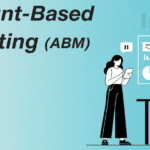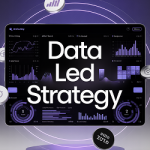Summarize the blog with Artificial Intelligence (AI):
Introduction and Summary
Artificial intelligence has moved from hype to habit. What was once exclusive to large enterprises is now accessible to any business with a laptop and a credit card [1].
But here’s what most people miss: we’re about to hit another inflection point. The rise of autonomous AI agents [1].
These aren’t passive tools sitting idle in your tech stack. They’re goal-driven systems that act like digital team members, working across marketing, sales, and customer success to identify leads, create content, and engage at-risk accounts without constant human intervention.
By 2026, every B2B small or medium-sized business will be using AI agents, not as an optional experiment, but as a competitive necessity [1]. The combination of economic pressure, democratized AI infrastructure, and shifting buyer expectations means the question isn’t whether to adopt AI agents. It’s which ones, how many, and how fast you can integrate them.
The businesses that embrace this shift early will gain a structural advantage in cost, speed, and adaptability.
From Tools to Agents: The Next Phase of AI Adoption
First, it’s important to define what we mean by AI agents [1].
We’re not talking about generic AI tools, like a chatbot on a website or a smart search feature inside software. We’re talking about autonomous, goal-driven systems that can perform complex tasks across multiple steps, often without human intervention [1].
For example:
- An AI agent that identifies and qualifies sales leads, writes outreach messages, and follows up until a meeting is booked [1].
- An AI content agent that plans, drafts, and schedules social posts based on audience data and performance trends [1].
- A customer success agent that monitors CRM activity and proactively engages accounts at risk of churn [1].
These are not passive tools. They are actors, agents that operate inside your business processes, much like human employees or contractors [1].
The key difference? Traditional AI tools wait for instructions. AI agents pursue goals. They don’t just answer questions, they take action across your entire tech stack to get results.
And they’re coming fast [1].
Economic Pressures on SMBs
The adoption of AI agents isn’t happening in a vacuum. It’s directly tied to economic realities [1].
SMBs are under mounting pressure: rising wages and talent shortages in sales, marketing, and customer service [1]. Increasing competition from both larger players and nimble digital startups [1]. Higher customer expectations for speed, personalization, and responsiveness [1].
At the same time, the cost of capital is no longer cheap. The post-2021 funding climate, shaped by rising interest rates and tighter venture flows, has forced companies to do more with less [1].
In this environment, scaling a team simply by adding headcount is no longer viable [1]. SMBs need leverage, and AI agents offer it [1].
Think about it: a single marketing manager can’t produce content 24/7, research hundreds of leads simultaneously, or respond to customer queries across multiple time zones. But AI agents can.
They don’t require salaries, benefits, or office space. They don’t take holidays or sick days. They scale instantly when demand spikes.
For founder-led businesses operating with tight budgets and small teams, this isn’t just attractive. It’s essential for survival and growth.
Democratization of AI Infrastructure
Until recently, only large enterprises had the resources to build custom AI systems [1]. But the rise of foundation models like GPT-4, Claude, and Gemini has changed everything [1]. The infrastructure is now available to everyone.
Low-code platforms such as Relevance AI and n8n mean agents can be built quickly and affordably [1]. Just as cloud computing democratized access to high-performance computing, pre-trained AI models and agent frameworks are democratizing access to cognitive labor [1].
Here’s what this means for SMBs:
No need for in-house data science teams. Prebuilt agents handle common use cases straight out of the box [1].
Low implementation complexity. SMB-friendly platforms wrap complex models in simple interfaces [1].
Affordable pricing models. SaaS-based AI agents are accessible even to bootstrapped teams [1].
The result? AI agents are no longer an experimental playground for the Fortune 500 [1]. They’re becoming a standard part of the SMB toolkit, giving small teams the power to compete with enterprise-level operations without the enterprise budget.
Changing Nature of Work
There’s also a deeper shift underway: the unbundling of work itself [1].
Historically, tasks were grouped into jobs and assigned to people. A sales rep did prospecting, outreach, pipeline management, and reporting. A marketer planned campaigns, created assets, and measured performance [1].
But AI agents break apart these bundles [1].
One agent specializes in research. Another specializes in outreach. A third specializes in reporting [1]. Each agent focuses narrowly, operates 24/7, and improves over time [1].
Instead of hiring a full-time employee to do five things, SMBs can deploy five agents to handle each task better [1].
This doesn’t mean humans go away, but it reshapes what they do [1]. Human teams shift from executing tasks to designing workflows, setting goals, and interpreting outcomes [1].
For founder-led businesses with fewer than five staff and no dedicated sales or marketing roles, this changes everything. You’re no longer constrained by the hours in your day or the skills you personally possess.
The constraint becomes strategy, not capacity. Your role evolves from operator to orchestrator, focusing on the work that truly requires human judgment while your digital team members handle the repetitive, time-consuming tasks that previously consumed your week.
Shifting Buyer Expectations
SMBs don’t operate in isolation. They exist in ecosystems, and those ecosystems are changing rapidly [1].
Buyers increasingly expect instant responses, personalized interactions, and seamless follow-ups [1]. A prospect who emails you at 9pm expects an answer by morning. A customer who raises a concern wants immediate acknowledgment, not a response when someone gets around to it.
Meanwhile, competitors, especially well-funded or digitally native ones, are using automation to increase their go-to-market velocity [1]. They’re responding faster, personalizing better, and moving through sales cycles with speed you can’t match manually.
Customers have little patience for operational inefficiency [1]. If your competitor can deliver a proposal in two hours while you take two days, you’ve already lost.
To keep up, SMBs must match or beat the speed and precision of AI-enhanced competitors [1]. Without AI agents, you risk falling behind in responsiveness, personalization, and delivery [1].
By 2026, having AI agents will not be a “nice to have.” It will be a baseline expectation [1].
The Maturity of the Agent Ecosystem
The agent ecosystem itself is maturing rapidly [1].
We’re already seeing agent-specialized platforms offering plug-and-play solutions for specific workflows [1]. Integrated ecosystems where agents connect seamlessly to CRMs, email platforms, and ad tools [1]. Developer communities rapidly improving agent orchestration, error handling, and task decomposition [1].
By 2026, we’ll likely see AI agents with full multimodal capabilities, handling text, image, video, and voice [1]. Cross-agent collaboration will become standard, where multiple agents coordinate to achieve complex goals [1]. Industry-specific agent suites will be tailored for vertical use cases [1].
Here’s what this means for you: SMBs won’t have to piece together experimental setups or hire technical teams to build custom solutions [1]. You’ll be able to subscribe to reliable, prebuilt agents that deliver value from day one [1].
The shift from experimentation to standardization is already underway. Platforms like RevGeni.ai are leading this charge, offering specialized Genies that work together across marketing, sales, and customer success without requiring technical expertise.
The barrier to entry is dropping fast. The question isn’t whether these platforms will be ready for you. It’s whether you’ll be ready for them.
The Bottom Line
Economic necessity, technological maturity, shifting work paradigms, and rising customer expectations converge on one clear outcome: by 2026, every B2B SMB will be using AI agents or risk falling behind [1].
These agents won’t be flashy experiments. They’ll be deeply embedded in business operations, handling lead generation, customer engagement, content creation, pipeline management, and data analysis [1].
For SMBs, the question won’t be whether to use AI agents. It will be which agents, how many, and how fast you can integrate them to gain an edge [1].
The businesses that embrace this shift early will enjoy a structural advantage in cost, speed, and adaptability, setting new benchmarks for growth in the AI age [1].
Your focus should be simple: start exploring prebuilt, reliable agent platforms that deliver value from day one. Don’t wait for perfect conditions. The competitive gap is widening now, and the window for early advantage is closing fast.
Ready to Explore AI Agents?
If you’re curious about how ready-to-use AI agents can help your business grow, explore RevGeni.ai. Our specialized Genies deliver plug-and-play solutions for B2B marketing, sales, and customer success, no technical expertise required. Start your free pilot program today and experience the power of digital teammates working alongside you.
Frequently Asked Questions
What’s the difference between AI tools and AI agents?
AI tools wait for instructions and perform single tasks, like a chatbot answering questions. AI agents are autonomous, goal-driven systems that work across multiple steps without constant human intervention [1]. They pursue objectives like digital team members, handling complex workflows from start to finish. For example, an agent can identify leads, write outreach messages, follow up, and book meetings independently.
How much do AI agents cost for small businesses?
AI agents are increasingly affordable for SMBs through SaaS-based pricing models [1]. Unlike hiring full-time employees, you avoid salaries, benefits, and office space costs. Many platforms offer monthly subscriptions accessible even to bootstrapped teams. RevGeni.ai provides a free pilot program, letting you experience value before committing. The real question isn’t cost, it’s the ROI from increased efficiency and 24/7 operation.
Will AI agents replace my sales and marketing team?
No. AI agents reshape what humans do, not eliminate them [1]. Your team shifts from executing repetitive tasks to designing workflows, setting strategic goals, and interpreting outcomes. Agents handle time-consuming work like lead research, data entry, and follow-ups. Your people focus on relationship building, creative strategy, and decisions requiring human judgment. Think of agents as digital teammates that amplify your team’s impact.
Do I need technical expertise to implement AI agents?
Not anymore. SMB-friendly platforms wrap complex AI models in simple interfaces [1]. Prebuilt agents handle common use cases straight out of the box, with no need for in-house data science teams. Low-code platforms have made implementation quick and accessible. RevGeni.ai’s Genies are designed specifically for non-technical users, offering plug-and-play solutions that integrate seamlessly with your existing tools.
What happens if my competitors adopt AI agents before I do?
You risk falling behind in speed, responsiveness, and personalization [1]. By 2026, AI agents will be a baseline expectation, not optional. Competitors using agents respond faster, personalize better, and move through sales cycles at speeds you can’t match manually. The businesses embracing this shift early gain structural advantages in cost, speed, and adaptability. The competitive gap is widening now.
Can AI agents work together across different business functions?
Yes. Modern AI agents collaborate across marketing, sales, and customer success [1]. One agent might identify and qualify leads, another creates personalized outreach content, while a third monitors customer engagement and flags churn risks. These agents share data and coordinate actions through integrated ecosystems connecting to your CRM, email platforms, and other tools, creating seamless workflows across your entire operation.
How do I know which AI agents my business needs?
Start by identifying your biggest bottlenecks and time-consuming tasks. Where does work pile up? What prevents your team from focusing on strategic growth? For founder-led businesses, common needs include lead research, content creation, and CRM management. Platforms like RevGeni.ai offer specialized Genies for specific workflows, making it easy to match agents to your pain points. Start small with one or two agents, measure results, then expand.
Sources
[1] How AI Agents Help Join the dots between Marketing, Sales, and Customer Success – Complete document covering AI agent adoption, economic pressures, democratization, and business implications









